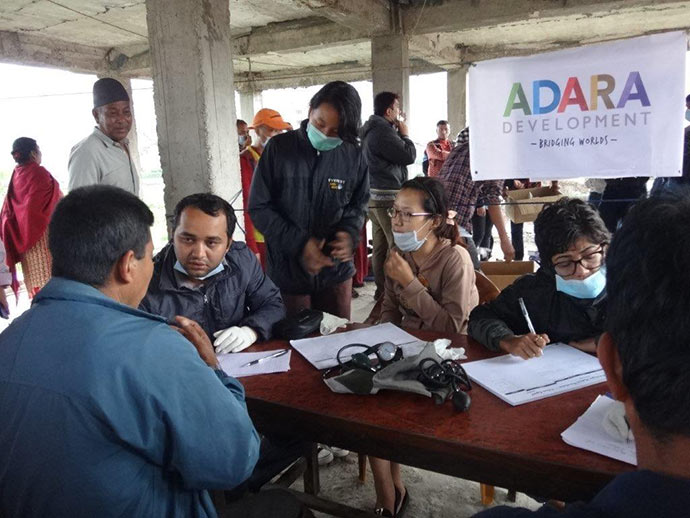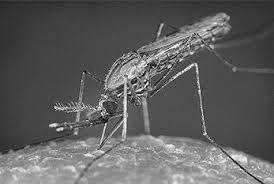Blog
Posted on May 6, 2015
By Lev Klarnet
 On April 25, a devastating 7.8-magnitude earthquake struck 50 miles outside of Nepal’s densely populated capital city of Kathmandu and the government quickly declared a state of emergency. Washington state responded quickly with a number of Global Washington members rushing to help victims of the quake by providing lifesaving supplies and services, medical assistance and shelter.
On April 25, a devastating 7.8-magnitude earthquake struck 50 miles outside of Nepal’s densely populated capital city of Kathmandu and the government quickly declared a state of emergency. Washington state responded quickly with a number of Global Washington members rushing to help victims of the quake by providing lifesaving supplies and services, medical assistance and shelter.
The World Health Organization estimates that for every 10,000 people in Nepal there are only two physicians and 50 hospital beds. Three GlobalWA groups — The Adara Group, Medical Teams International and UNICEF — are staffing mobile health units which are traveling the treacherous mountain terrain to provide pivotal healthcare to people in remote parts of the country.
Continue Reading
Posted on April 29, 2015
By Susan Burns, General Counsel, Adara Group Director, Adara Development (Australia) and Adara Development (Uganda)
Adara Development is a Global Washington member.

I was on the phone to my sister when I saw the email arrive – Nepal had been hit by a massive earthquake. As the next few hours unfolded, I could not believe the images that were rolling in. Kathmandu, the beautiful city I had visited just one week earlier, had been ravaged, and thousands of Nepalis were feared dead. The devastation to the people and cultural heritage of an incredible nation has just been heartbreaking to watch.
Continue Reading
Posted on April 23, 2015
 World Malaria Day was established in 2007 as a way to mobilize advocates and citizens around the world to help put a stop to the disease. This year’s theme is Invest in the future, Defeat malaria, which encourages people to help close the malaria funding gap. 2015 also marks the ten-year anniversary of the President’s Malaria Initiative (PMI). The goal of the PMI was to reduce malaria-related mortality by 50% across fifteen high-burden countries in Sub-Saharan Africa through a rapid scale-up of treatment and prevention. The PMI’s achievements include the procurement of 40 million insecticide treated mosquito nets and 48 million antimalarial treatments.
World Malaria Day was established in 2007 as a way to mobilize advocates and citizens around the world to help put a stop to the disease. This year’s theme is Invest in the future, Defeat malaria, which encourages people to help close the malaria funding gap. 2015 also marks the ten-year anniversary of the President’s Malaria Initiative (PMI). The goal of the PMI was to reduce malaria-related mortality by 50% across fifteen high-burden countries in Sub-Saharan Africa through a rapid scale-up of treatment and prevention. The PMI’s achievements include the procurement of 40 million insecticide treated mosquito nets and 48 million antimalarial treatments.
Continue Reading
 On April 25, a devastating 7.8-magnitude earthquake struck 50 miles outside of Nepal’s densely populated capital city of Kathmandu and the government quickly declared a state of emergency. Washington state responded quickly with a number of Global Washington members rushing to help victims of the quake by providing lifesaving supplies and services, medical assistance and shelter.
On April 25, a devastating 7.8-magnitude earthquake struck 50 miles outside of Nepal’s densely populated capital city of Kathmandu and the government quickly declared a state of emergency. Washington state responded quickly with a number of Global Washington members rushing to help victims of the quake by providing lifesaving supplies and services, medical assistance and shelter.
 World Malaria Day was established in 2007 as a way to mobilize advocates and citizens around the world to help put a stop to the disease. This year’s theme is Invest in the future, Defeat malaria, which encourages people to help close the malaria funding gap. 2015 also marks the ten-year anniversary of the President’s Malaria Initiative (PMI). The goal of the PMI was to reduce malaria-related mortality by 50% across fifteen high-burden countries in Sub-Saharan Africa through a rapid scale-up of treatment and prevention. The PMI’s achievements include the procurement of 40 million insecticide treated mosquito nets and 48 million antimalarial treatments.
World Malaria Day was established in 2007 as a way to mobilize advocates and citizens around the world to help put a stop to the disease. This year’s theme is Invest in the future, Defeat malaria, which encourages people to help close the malaria funding gap. 2015 also marks the ten-year anniversary of the President’s Malaria Initiative (PMI). The goal of the PMI was to reduce malaria-related mortality by 50% across fifteen high-burden countries in Sub-Saharan Africa through a rapid scale-up of treatment and prevention. The PMI’s achievements include the procurement of 40 million insecticide treated mosquito nets and 48 million antimalarial treatments.